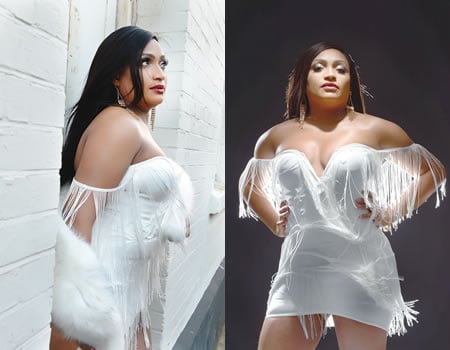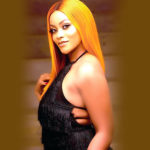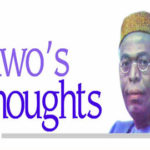You have been releasing singles and videos since your return. What prompted these frequent works?
It is a delight to return to the mainstream after almost seven-year break from my career to raise my children and focus on other aspects of my life. I was yearning to get back to my passion and what I love. I never stopped writing or recording. Though I was not active, I continued to collaborate with my main producer, TeebeeOto, whom I am very grateful to for his endless support. He was one of the few people that believed in me.
As a perfectionist, I wanted to make sure the sound was right and the music well-crafted and polished. My producers and I recorded for awhile before I finally decided to release some songs. I took my time as I wanted my music to be unique. I didn’t want to release songs for the sake of being current or consistent. I wanted my music to be of high quality and in tune with the time.
Are you satisfied with the feedbacks?
They have been awesome so far and I am grateful that despite the break, my music is still being embraced by all. The responses have been very positive. I have released a number of singles such as Kampe, No Fall My Hand, Pariwo and the latest is the video of Pariwo.
Your recent works have more Nigerian flavour. Does that mean you are in tune with happenings in the country, especially the music content?
I have been doing a lot of research and I make sure I stay current. I am very passionate about what I do and will always do my best. I didn’t want to slow down. I believe I am born to stand out.
Moreover, I was born and raised in Nigeria, Ibadan, Oyo State to be precise and I wanted to infuse my culture into my music, so I collaborated with my producer on every song in my album as he is the only one who seems to understand what I am trying to create and with his help and expertise I was able to do this. TeebeeO and I have similar influences and he also comes from the live music background – we have even performed live before he relocated years ago to Nigeria. He understands my tone and influences like my father, Anjola Aboderin, Fela Kuti, Ebenezer Obey, Sunny Ade and Onyeka Onwenu, Lagbaja, Sade Adu, Jill Scott, Anita Baker, etc.
What is your next focus after this phase?
The plan is to release the album My Way this year and then embark on European and African tour, while I work on my next album. The tour will enable me to connect more with my fans and music lovers and perhaps possibly afford me to get a live recording of my tour on a CD and DVD. I am currently working on a few collaborations with artistes like Ada Snoop and Jaymalik.
How has life been staying abroad?
It has been a roller-coaster as you literally have to combine different aspects of living into one. From having a nine to five professional day job as project and change manager to being a mother of two children and managing my fashion business and still conducting my music career, it is hard to find a balance. But God has been faithful and has enabled me to carry on and make things happen. I wouldn’t want to pretend and say it’s been easy; God’s grace has afforded me tenacity. There are times I survive on little or no sleep. Basically, I would say that my faith in God keeps me strong.
Do you feel Nigeria has all it takes to compete with the standard of music abroad?
I feel there is still lot of room for improvement, but I also know that there are true talents in Nigeria. I feel some still need to work on perfecting their craft before going out there.
Do you feel threatened among foreign musicians?
No. I don’t feel threatened and never will. Everyone is unique and I feel as long as you are trying to be yourself and staying unique, you can never be threatened.
How do you intend to connect Nigerian fans with your latest vibes?
I am already connected. My recent work is also a testament that I have my Nigerian fans at heart. Aside all that, I would like to do a tour across Africa and begin the tour from Nigeria.
Do you feel you are doing enough with your music career?
Yes. I am currently doing my best as I possibly can. The dream is to do this as my full time, career and dedicate more time as music is what makes me happy and I believe it is what I was born to do.
What is your greatest challenge in the industry?
Being a woman, most of all. There seems to be a wrong perception of women in the industry, especially in the African music scene. I think one of the biggest issues would be having children, and not having it held against you. A woman can be a mother, as well as a working musician. She may want to work even more after having kids, with financial needs, as well as the need to feel like herself and not just ‘the mom.’ The life of an artiste is difficult and the schedule is demanding. How does one juggle responsibilities to family, home, art and self? This is difficult for any working mother, and particularly for a working musician artiste mother.
Another issue is age discrimination and sexualisation of women by the industry as portrayed in the media. The media portrays a distorted view of the successful female artistes. Another challenge is about creepy men in the music industry, trying to decipher between which men are honestly being helpful and nice, and which are just trying to sleep with you can be daunting. The biggest issue affecting women is that most men still think the industry is a boys’ club. Traditionally, the industry is a male-dominated profession.
Traditionally, females are often judged first on their appearance and afterwards on their ability, which is not fair. Most of all, I feel even in the 21st century, women need something to say and something great to offer are not acceptable commercially unless they ‘sex it up’ or look like a supermodel. I’m not sure the media moguls allow women into the high-profile scene purely on talent. To sum it up, I also feel artistes do not support each other enough and focus on competing instead.
Are you saying female musicians are underrated in Nigeria?
Yes, I think so. We, as female artistes, should come together and empower each other, and then the future will be better for us, as female artistes are severally underrated by the male dominated sector. Traditionally, the industry is a male-dominated profession, but this doesn’t have to be so in this century as there are so many other talented female artistes that have not been discovered due to these challenges.
What has life taught you as a musician?
As a musician, life has taught me so many things. Firstly, to be myself ‘fitting in’ is highly overrated. I will continue to be me. Confidence is sexy. Besides, great leaders didn’t get where they are by following the crowd. I will never give up on my dreams and passion (music) despite the challenges. Taking time for myself to meditate and do some writing and creating good music, is where I derive most happiness. No one is perfect and also saying no when I need to, as I used to take on so many tasks and tried to please everyone.
How did music start for you?
I started music at the age of four. I was born into a music family. My father, Anjola Aboderin, is a renowned musician, who plays all kinds of instruments. He built his own guitar when he was a child in primary school. I would describe my father a musical genius. I was raised in a musical home, where a poultry was converted into a music studio, and our compound was always filled with musicians, day in day out. I shadowed so many top musicians mentored by my father daily.
I would watch bands rehearse daily and even had to sleep through my father and his band rehearsing for their next gig. Can you imagine waking up to the sound of your father’s saxophone playing the same song over and over trying to perfect the song and expect music not to be a part and parcel of your existence? Music is my foundation. I had my first group at a tender age of six, performing my first gig and at the Cultural Centre, Ibadan, alongside Wale Thompson; I then continued singing and pursuing my passion for music in the church as a lead singer and key member of the church’s choir.






